Career Trends
- When Will AI Make Career Coaches Redundant?
- Calling Student-Mothers Enrolled in an Undergraduate Program
- Global Trends, Policies, & AI on the Workforce Webinar
- From Hurdles to High Performance: Making AI Work for Your Business
- Qatar Career Guide, 15th Edition
- Can You Have Fun Learning Career Development Terms?
- Reinventing Your Professional Life: Tips for Switching Industries with Confidence
- Empowering Futures: The Vision and Impact of Career Counseling Day (CCD) in Pakistan
- Excellent Career Center: Learning and Sharing with Fellow Career Development Professionals
- Holland’s RIASEC Hexagon: A Paradigm for Life and Work Decisions
- Stepping Strong: Young Women Rising in the Workforce
- Empower High School Students: Discover University Life Through Peer-to-Peer Networking!
- Tips for Finding (and Landing) the Perfect Job While in College
- Make AI your Superpower, not Kryptonite!
- Sharing Career Development Services from the Perspective of a Lebanese Community Based NGO!
- Weathering the Storm: Strategies for Career Survival and Growth
- Skills as Soft Currency: Perspectives of Policymakers on Pertinent Global Labor Market Issues MEET Industry 5.0
- Tackling Post-Pandemic Workforce Issues Through HRP and CDPs
- Crafting Unicorn Careers: Navigating the Future of Work with STEM
- New Career Development Term: Intersectionality
- State of the Global Workplace, 2023 Report
- Biggest Challenges in Our Region
- Is Climate Change a Threat?
- Work Locations for U.S. Employers with Remote-Capable Jobs
- These are the 5 Fastest Growing Jobs in the World
By Han Kok Kwang, Bestselling Author, 1st Legacy Partner Lifetime Member of APCDA & 1st NCDA (US) Master Trainer in Asia
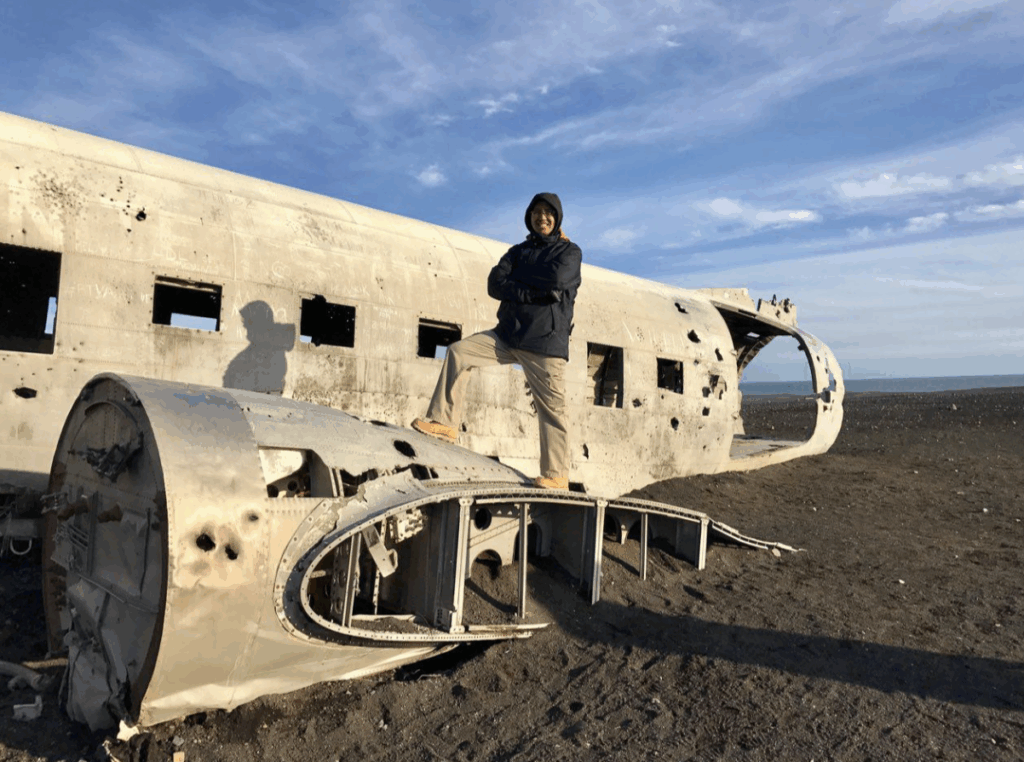
In 1973, a U.S. Navy DC plane ran out of fuel and crash-landed on the black sand beach at Sólheimasandur in Iceland. It didn’t explode. No one died. But the wreckage is still there today—abandoned, stripped, lifeless. It survived the crash, but it never flew again.
That image has stuck with me because, frankly, it reminds me of what’s happening to many career coaches right now. Still here. Still breathing. Still caring deeply about the people they serve but slowly becoming grounded. Quietly becoming obsolete and out of the game without even realizing it.
The uncomfortable truth? AI is already doing much of what coaches have built their careers around. Résumé writing, interview prep, job matching, even career assessments—AI tools can now do it all, often better, faster, and cheaper than any human coach. And they’re only getting smarter.
Soon, 70% of jobs will be automated or restructured beyond recognition. When that happens, clients won’t be asking how to write a better résumé. They’ll be asking how to earn a living when the old rules no longer apply. And if you are still offering “classic” career advice, relying on outdated methods, or avoiding AI because it’s “not your thing,” you’re not just behind—you’re standing still while the world moves on without you. You’re not coaching anymore. You’re cruising. And in this new reality, cruising is just a slow but sure way to crash.
Let’s stop sugar-coating it: the coaching industry is being disrupted like every other profession. But here’s the kicker—it’s not about replacing humans with machines. It’s about replacing coaches who refuse to adapt with those who do. The ones who will thrive are not necessarily the most tech-savvy, but the most willing to start messy. You don’t need to know everything. You
don’t need a perfect plan. But you do need to take action now.
Too many coaches are waiting. Waiting for the perfect time to learn AI. Waiting to feel more confident. Waiting to see what everyone else does first. The truth? There is no perfect time. If you wait too long, your clients will move on—and so will the market. You snooze, you lose.
Start today. Learn the tools. Use ChatGPT to simulate interviews or generate clarity scripts. Use Jobscan for résumé optimization. Try TealHQ or CareerFlow for job tracking and personal branding. Get curious about what tools like Pymetrics or Eightfold.ai can tell you about future-ready skills. Go explore many more on the Net and find the ones that work for you.
These tools aren’t the enemy—they’re your survival kit. But they’re not enough on their own. What AI can’t offer is you. Your empathy. Your presence. Your ability to read the room. To ask the right questions. To sit with someone in silence when they’re on the edge of a breakdown. To help someone rediscover their worth when the world no longer sees it.
This isn’t just about coaches. It’s about every Professional, Manager and Executive out there—every engineer, analyst, manager, and consultant who thought they were safe… until they weren’t. Upskilling alone won’t save them. And it won’t save you. You either learn how to fly again—or get left behind in the sand.
******
To stay updated, connect with Han on LinkedIn or check out AI-powered career credentials.
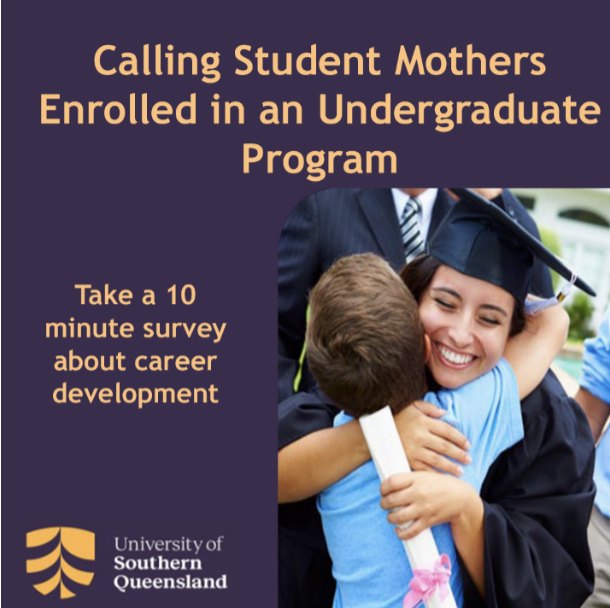
Please invite student-mothers to share your experiences!
Invite your students or your clients, or your friends to take the survey.
What: Participate in a 10-minute survey
Why: To improve our understanding of the career development needs of student- mothers
Email: mary.mcgovern@unisq.edu.au if you have any questions
This project has approval, HREC Project ID: ETH2024-0217. Your responses are anonymous. Once you complete the survey, your responses cannot be removed as it is anonymous.
By Dr. Sujata Ives and Syed Hassan Abdullah, Program Committee Co-Chairs
The United States has, once again, catapulted itself into chaotic workplaces. The current trend is the frantic search for new policies through the help of Artificial Intelligence, since the devastating eradication of diversity, equity, and inclusion programming.
Not long ago, a global pandemic wreaked havoc across nations and cultures, destroying more than 2.5 million people through its devastation of families and communities. It also disrupted economies and political dynamics all around the world. Today, we find ourselves in a similar crisis and we are experiencing negative emotions that are yielding similar data. Once again, we are forced to learn that crisis in one part of the world has an impact on the entire globe.
What comes to you mind when you hear “Global Trends”? Perhaps it is conflict zones or workplace toxicity or employee wellbeing, or the termination of systemic policies, or the inequity in Artificial Intelligence. Turning crises, disasters, and calamities into peaceful workplaces needs to be a policies priority in creating and implementing something sustainable.
Our esteemed guests cordially brought an important solution for eradicated policies, particularly the annihilation of diversity, equity, and inclusion in workplaces. They adroitly painted a picture of the breadth and depth of a necessary tool and strategy to the forefront. One that would work in any discipline and sector of the workforce. The tool and strategy of “Interculturalism” and UNESCO’s Story Circles Model is a superb one for workplaces.
This esteemed panel brought their expertise from UNESCO where “Interculturalism” can easily and effectively replace programming that no longer exists in workplaces. Interculturalism is a peaceful tool and strategy that promotes dialogue and narratives through the UNESCO Model for Story Circles. Information can be found on this website https://iccglobal.org/ where all the information is free for you to use and implement in your workplace.
This panel reminded us that we do, indeed, have the internal desire for resilience, adaptation, and peacebuilding. Those desires need to be utilized positively and empathetically through the myriad of uncertainties that exist in education, economy, governance, geopolitics, technologies, and artificial intelligence.
Competition between countries will remain as long as there are borders. This may not change; therefore, we must learn to coexist through research, practice, and virtual exchange. They ask us to do so at the individual, team, and organizational levels. We must place a focus on peaceful workplaces through a mutually supporting mindset beside the competition of political influence, governance models, and tech dominance.
Awareness, dialogue, and storytelling is at the heart of breaking down silo mindsets. People lose trust during crises, whereby individuals, groups, and nations become fragmented into economic blocks where nations are against nations, and people are against people. Our guests focused on building community and sense of belonging to create peaceful workplaces through active and strategic listening skills.
“What are strategic listening skills?”, asked a participant.
The UNESCO Chair empathetically answered by stating that we rarely listen to what a person is trying to convey. We are in the habit of listening to provide reactive answers, because we have too much on our plate, and we just want to get the conversations over with as soon as possible so we can move on to the next task. This is a signal and red flag of our busy times. Instead, take a moment to step back, truly listen to the person through undivided attention (active listening), ask clarifying questions (instead of getting offended), pick out the feelings & values (strategic listening), and work together for decision-making and problem-solving. Active listening (undivided attention) and strategic listening (listening to feelings & values) are proficiencies that are vital for today’s workplaces.
Do not lose hope.
While the world may be adrift in a million different directions, you do not have to absorb the tensions of the world that are directionless, volatile, paralytic, divisive, and chaotic. You can continue to do the good work that you do through your knowledge and skills, gain new skills in intercultural competencies, and adopt an honored transferable role of “peacemaker”.
In summary, global trends that emerge can be positive and negative. Policies take time to implement, but can be hastened through advocacy, tools, strategies, and virtual exchanges, bearing in mind the importance of the human element as AI continues to evolve. These were the brilliant messages from our February panel on “Global Trends, Policies, & AI”.
Thank you to experts Dr. Darla Deardorff, Dr. Didem Ekici, & Fran Baxter for taking their time to be with us and help us to develop inclusive mindsets regarding global trends, policies, and artificial intelligence.
By Sharon Redd

In the dynamic landscape of modern business, integrating artificial intelligence (AI) is not just an option but a strategic necessity. AI offers transformative potential, enabling companies to enhance operational efficiency, foster innovation, and maintain a competitive
edge. However, successful AI integration requires a deep understanding of its applications, challenges, and the strategic benefits it can deliver. By focusing on education, data-driven
culture, and strategic investment, businesses can effectively incorporate AI into their operations, paving the way for sustainable growth.
Boosting Business Efficiency with NLP
Integrating Natural Language Processing (NLP) into business operations can significantly enhance efficiency. By enabling machines to understand and respond to human language, NLP allows you to automate tasks such as categorizing customer service emails. This automation streamlines workflows and frees up human agents to tackle more complex issues, ultimately improving customer satisfaction. For instance, imagine a system that automatically sorts and prioritizes customer inquiries, allowing your team to focus on resolving high-priority matters more effectively.
Building a Data-Driven Culture for AI Integration
To truly leverage the potential of AI, fostering a data-driven culture within your organization is essential. While many employees report working in environments prioritizing data and AI, cultural and change management challenges remain significant barriers. This underscores the importance of adopting technology and cultivating a mindset that values data literacy and continuous improvement. By doing so, you can ensure that AI initiatives are implemented and scaled effectively.
Elevating Your Business with AI Education
Gaining a deeper understanding of AI can be a game-changer for your business. By working toward an online degree in computer science, you can build your skills in AI along with IT, programming, and computer science theory. This educational path not only equips you with the knowledge to implement effective AI strategies but also helps you understand AI ethical and economic impacts on society. Plus, earning an online degree makes it easier to juggle running your business while managing your studies. As AI continues to transform industries, having a solid foundation in this field can position your company for future success.
Balancing AI Integration with Cost and Scalability
When incorporating AI into your business operations, it’s essential to balance the potential benefits with scalability and cost challenges. The rapid growth of AI training computing, expanding approximately 4x annually, highlights the transformative potential of AI
technologies. However, this growth demands substantial power, chip manufacturing, and data resources investments. As you plan for AI expansion, consider that training runs could last two to nine months, with power constraints potentially limiting the available supply to
just 10%–40%. Understanding these factors can help you make informed decisions about the feasibility and cost-effectiveness of scaling AI within your organization.
Interactive AI Training for Business Success
Adopting interactive and hands-on training methods such as workshops and simulations is essential to integrate AI into your business operations seamlessly. These approaches enable employees to engage actively with AI software, fostering a deeper understanding of its practical applications. By simulating real-world scenarios, employees can experiment with AI tools, enhancing their problem-solving skills and boosting their confidence in using
these technologies. This method demystifies AI and encourages innovative thinking as employees learn to apply AI solutions to everyday challenges.
Optimizing AI Investments Through Strategic Data Management
To fully leverage AI in your business, it’s essential to implement effective data tracking systems that accurately evaluate AI’s return on investment (ROI). Regularly monitoring AI performance can prevent the common issue of model degradation over time, ensuring sustained value from your AI initiatives. This continuous assessment enables you to make informed decisions about necessary adjustments and maintenance, safeguarding the long-term benefits of your AI investments. Additionally, a comprehensive analysis of your AI projects; tangible and intangible aspects can reveal opportunities for further optimization, leading to enhanced efficiency and cost savings. Viewing AI initiatives as part of a broader portfolio rather than isolated projects allows for better resource allocation and maximizes the overall impact on your business.
Maximizing Business Potential with Human-AI Collaboration
In today’s rapidly changing business environment, the synergy between human expertise and artificial intelligence (AI) transforms companies operations. By creating hybrid teams where AI systems complement human leaders, businesses can harness their strengths to drive efficiency and innovation. This collaboration allows AI to manage data processing and automation, enabling humans to concentrate on tasks that require emotional intelligence and critical thinking. To maintain a competitive edge, it’s crucial to regularly assess human and AI skills, as over-reliance on AI can lead to missed opportunities and ethical concerns.
Integrating AI into business operations is a transformative journey requiring strategic planning and continuous learning commitment. By embracing AI’s potential and addressing its challenges, businesses can enhance their operational capabilities and drive innovation and growth. As AI evolves, those who adapt and integrate these technologies effectively will be well-positioned to lead in the future business landscape.
———————————
Sharon Redd created Live All the Way to help others live life to the ABSOLUTE FULLEST. She believes life all the way is a life with all the toppings! It’s ordering guacamole and queso at the restaurant. It’s wearing those bright pink shoes, no matter what anyone else thinks. It’s using your formal china for every meal and hugging your friends every time you see them. It’s eating ice cream for breakfast and so much more. Her goal, each and every day, is to live all the way and her mission is to help others do the same.
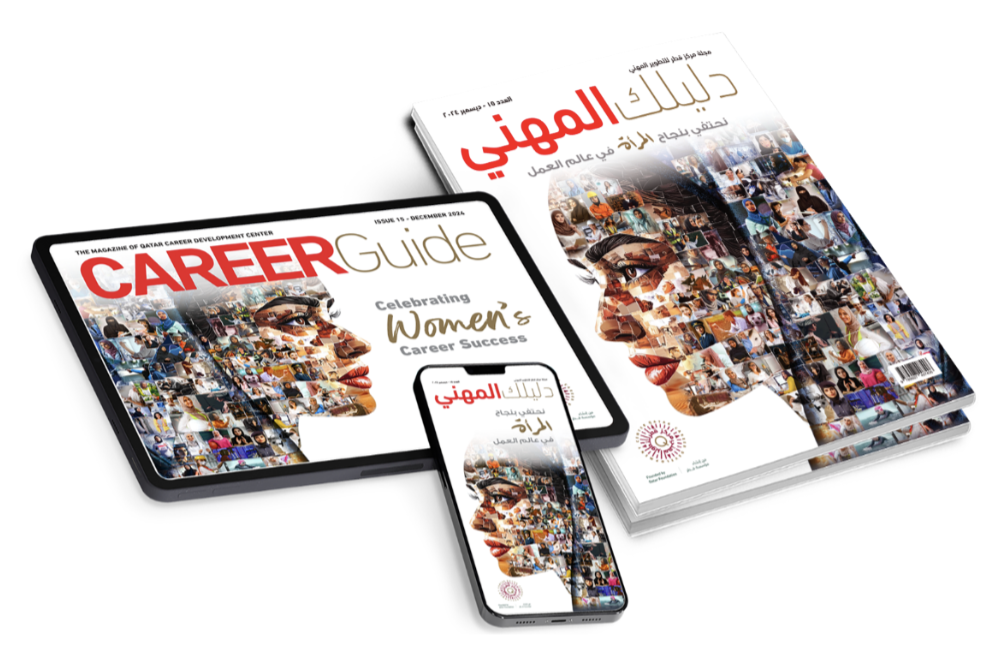
Qatar Career Development Center (QCDC), founded by Qatar Foundation (QF), is proud to announce the release of the 15 th edition of Career Guide, Qatar’s leading bilingual publication dedicated to career development.
This special edition is a tribute to the extraordinary achievements of women in the workforce. It features inspiring stories of women from Qatar and around the world who have excelled in various fields, including medicine, engineering, technology, aviation, media, sports, art, social entrepreneurship, and diplomacy. Through exclusive interviews, these accomplished women share their career journeys, the challenges they have faced, the lessons they have learned, and their advice for aspiring professionals.
The magazine is available in both English and Arabic in the “Publications” section on QCDC’s website through the following links:
- English: https://bit.ly/CG15En,
- Arabic: https://bit.ly/CG15Ar.
It is also available as a smartphone/tablet application, which can be downloaded from the App Store and Google Play:
- App Store: https://bit.ly/GuideAppstore,
- Google Play Store: https://bit.ly/GuideGooglePlay.
Alternatively, you can scan the QR Code below to directly access the app’s page on your app store.
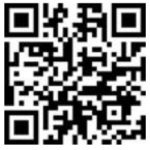
We highly value the APCDA community’s feedback and would appreciate any insights, opinions, or suggestions you may have to help us continually improve our publications, programs, and services. Please take a moment to participate in our short survey by visiting this link: https://bit.ly/CG15Survey.
By Allan Gatenby, APCDA President
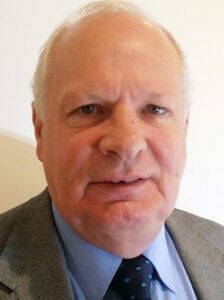
Qatar Career Development Center (QCDC), founded by Qatar Foundation (QF), has just unveiled it’s groundbreaking search engine for career development terms. Developed in collaboration with the Translation and Interpreting Institute (TII) at Hamad Bin Khalifa University (HBKU) and APCDA, this specialized platform provides a comprehensive glossary of career development terms translated into Arabic. Amazingly, whether you speak English or Arabic, you can have fun with this new way of exploring career development terms. Try it and see: https://qcdc.org.qa/glossary/
This pioneering platform goes beyond a static glossary. It presents a dynamic, continuously evolving database of standardized Arabic career development terms paired with their English equivalents. This significant advancement ensures users have access to the latest definitions and concepts in career guidance and development, tailored to the rapid advancements in the field. The platform is equipped with a powerful search engine that allows users to find terms and their definitions within fractions of a second. Additionally, the alphabetical arrangement of terms in both Arabic and English facilitates easy navigation and exploration. By combining these advanced concepts, the platform enhances the ability of both English and Arabic-speaking career practitioners to deliver high-quality guidance services.
Moreover, the platform features an interactive user interface with regular content updates based on the latest glossary editions released by APCDA. It provides detailed definitions of specialized career development terms with multi-dimensional explanations. This makes it an invaluable resource for researchers, practitioners, career and academic counselors, and industry professionals, ultimately elevating the quality of career guidance services throughout the region.
Commenting on the launch, Mr. Saad Abdulla Al-Kharji, Acting Director of QCDC, said: “The launch of the Arabic version of the third edition of the APCDA Glossary of Career Development Terms represents a strategic milestone in solidifying the Arabic language’s position within professional and scientific fields. We are honored to collaborate with the Translation and Interpreting Institute and the Asia Pacific Career Development Association, whose contributions enable us to empower Arab career practitioners to provide top-tier career guidance services to our youth.”
APCDA President, Mr. Allan Gatenby, provided these comments:
Mr. Arun Mital, APCDA Executive Director, commented that “The new version of the Glossary of Career Development Terms developed by the Qatar Foundation and the Qatar Career Development Center is indeed an exciting new way of using the APCDA Glossary, both for Arabic speakers and English speakers. The ability to find definitions so quickly and easily changes a boring-looking document into a lively and fun experience. The improved communication achieved within our field by making career development terms easily understandable truly builds bridges across diverse cultures.”
As the pioneering comprehensive Arabic linguistic reference in the career development field, this platform opens new avenues for the Arab region to contribute significantly to this vital field. The initiative aligns with ongoing efforts to preserve the Arabic language and enhance its presence in academic and professional domains, preparing Arab communities to effectively navigate the challenges of the future labor market. Through this initiative, QCDC and its partners reaffirm their shared commitment to advancing career development in the Arab region and promoting Arabic as a global language that meets contemporary demands across various fields.
by Sharon Redd

Image via Pexels
Are you contemplating a shift in your professional journey? Transitioning to a new industry can be both invigorating and daunting, offering a chance to redefine your career path. This change demands a thoughtful approach, where preparation and strategic planning are key. By focusing on your existing skills and aligning them with new opportunities, you can create a roadmap that leads to a fulfilling career. Let’s explore how to make this transition effectively, ensuring that each step you take is purposeful and aligned with your aspirations.
Crafting a Career Transition Plan
A career change requires a well-structured transition plan that outlines specific steps, timelines, and resources to ensure a smooth shift into a new industry. Begin by conducting a thorough self-assessment to identify your skills, interests, and values, which will guide your career objectives and short-term goals. Allocate the first two months to this self-reflection phase, followed by industry research in months three and four to understand the roles that align with your findings. As you progress, focus on skill development and gaining relevant experience through courses, certifications, or volunteer work.
Aligning Your Core Values
Understanding your core values is necessary when considering a career change, as these values are the fundamental beliefs that guide your decisions and actions. Evaluate how your core values align with potential career paths so you can ensure that your professional life is both satisfying and meaningful. Reflect on moments when you felt truly fulfilled and identify the values you were honoring during those times.
Building Your Non-Negotiable List
When considering a shift to a new industry, it’s important to establish a list of non-negotiable factors that will guide your career decisions. These factors might include work-life balance, salary expectations, or the type of work culture you desire. By clearly defining these priorities, you can streamline your job search and focus on opportunities that truly align with your personal and professional values.
Starting Your Own Business
If you’re considering starting your own business, begin by laying a solid foundation: register your business, obtain necessary licenses, and set up a financial system. One of the most beneficial structures for new ventures is forming a limited liability company (LLC), which protects your personal assets from business liabilities. Many online formation services offer customized registration packages that include essential services like obtaining an Employer Identification Number (EIN) and acting as a registered agent.
Identifying Your Current Skills
Identify the skills you’ve honed in your current role that can be valuable elsewhere. These transferable skills, such as project management or research abilities, transcend specific job titles and industries. For example, the organizational skills you developed while managing projects can be instrumental in designing engaging lesson plans if you’re transitioning to a teaching role. Seeking advice from mentors or career advisors can further illuminate how these skills can be effectively marketed to potential employers in your new field.
Reflecting on Previous Job Experiences
Reflecting on your previous job experiences is helpful when considering a career change. It allows you to pinpoint what aspects of your past roles you enjoyed and which you found less satisfying. This self-awareness helps you steer clear of similar pitfalls in future positions, ensuring a more fulfilling career path. By identifying your strengths and weaknesses through self-reflection, you can focus on roles that align with your natural talents and passions, ultimately leading to greater job satisfaction.
Taking Personality Assessments
Using personality assessments like the Myers-Briggs Type Indicator can be useful when contemplating a shift in your professional path. These tools provide insights into your inherent traits, helping you identify work environments and roles that align with your natural preferences. They can also highlight areas where you may need to develop new skills or adapt your approach to succeed in a different industry. By understanding your strengths and areas for growth, you can make more informed decisions about your career transition.
A career change is more than a professional shift; it’s a personal evolution. By embracing your strengths, learning from past experiences, and aligning your career with your values, you can forge a path that is both rewarding and true to who you are. Approach this transition with intention and clarity, and you’ll find a career that not only meets your professional goals but also enriches your life.
By Muhammad Basit Rana

Since its inception in October 2019, Career Counseling Day (CCD), founded by Muhammad Basit Rana, also known as MBR HR WALAY, has become a transformative force in Pakistan’s career development landscape. With unwavering dedication, CCD strives to bridge the gap between aspiring professionals and expert career counselors, offering valuable guidance and fostering a community rooted in support, expertise, and shared purpose.
A Mission of Empowerment
At its heart, CCD embodies the mission to empower youth with insights and mentorship that guide them toward fulfilling career paths. The initiative connects individuals with seasoned career counselors, offering invaluable, personalized advice to navigate career uncertainties. CCD also harnesses the expertise of HR WALAY Institute graduates, forming a dynamic network of professionals devoted to empowering Pakistani youth.
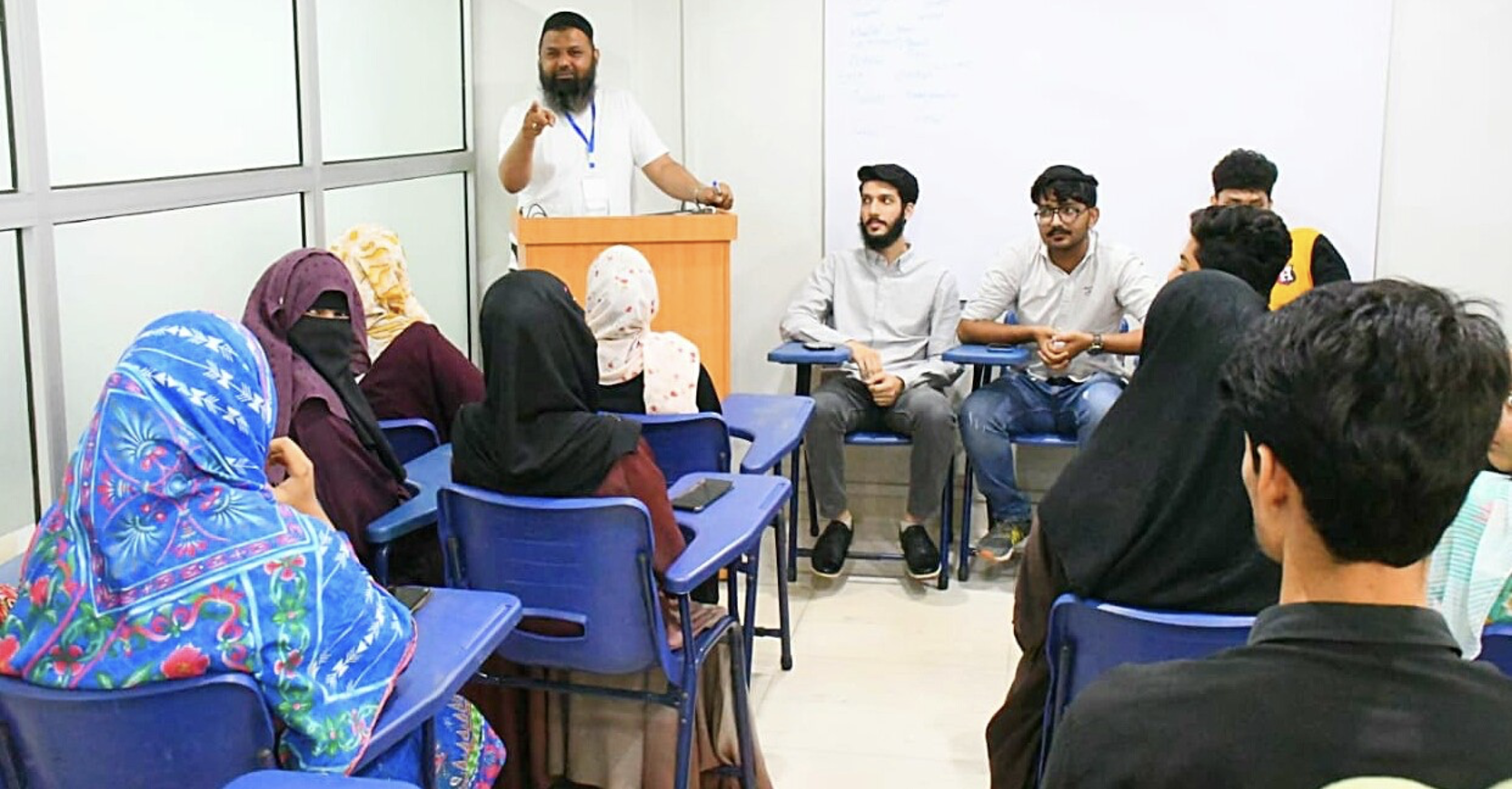
Key Objectives of CCD
- Empowering Youth: Providing expert career guidance to inspire and equip individuals for success.
- Building Bridges: Strengthening connections between career counseling professionals and those seeking direction.
- Facilitating Knowledge Sharing: Promoting best practices in career counseling and professional growth.
- Fostering a Community: Cultivating a supportive network of trained counselors dedicated to societal impact.
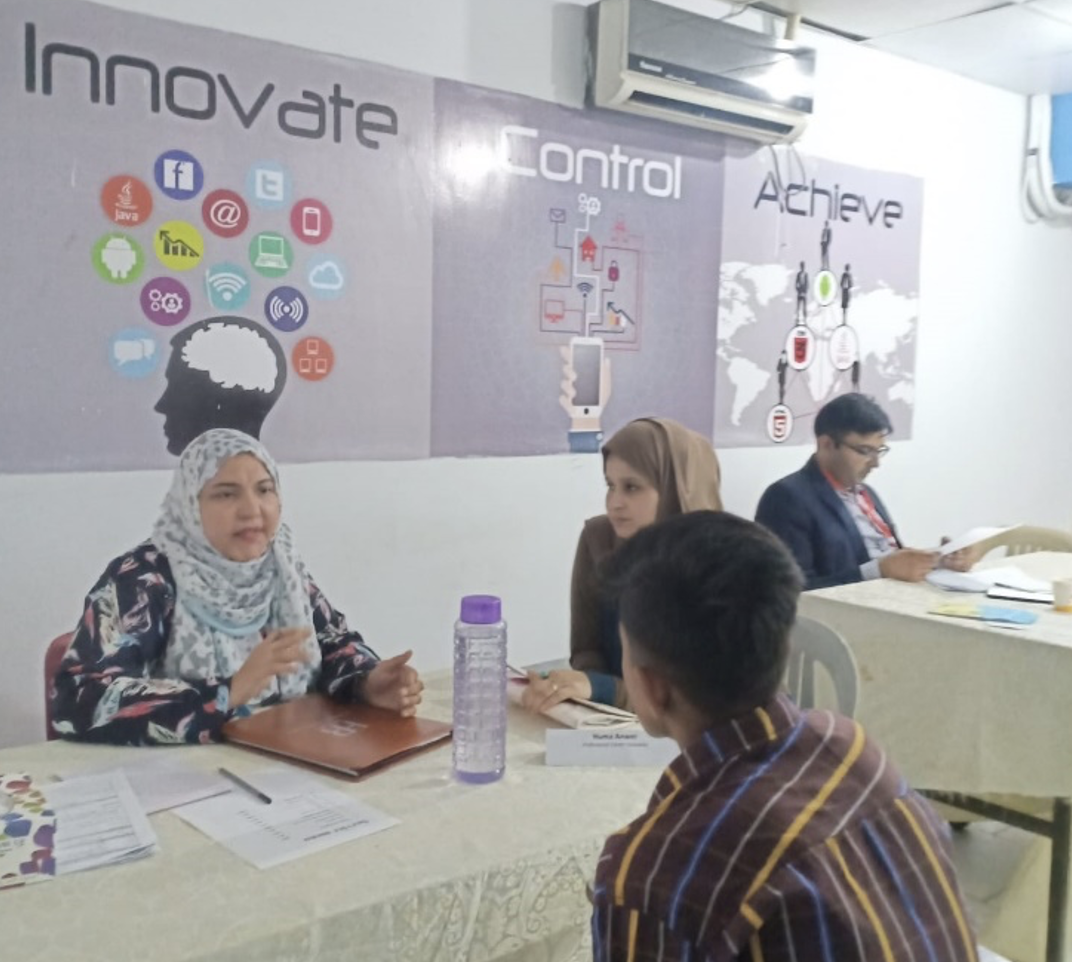
A Legacy of Success and Growth
CCD’s journey has been marked by the success of seven impactful events, each leaving an indelible mark on the lives of its participants. Through engaging workshops, insightful discussions, and networking opportunities, CCD has reached countless individuals seeking clarity and direction. The legacy of these events, documented through engaging recordings, showcases CCD’s unwavering commitment to uplifting careers and transforming lives. (Links to previous events are available for viewing.)
Career Counseling Day – 7, July 22, 2023
Career Counseling Day – 6, May 28, 2022
Career Counseling Day – 5, October 30, 2021
Career Counseling Day – 4, January 30, 2021
Career Counseling Day – 3, January 25, 2020
Career Counseling Day – 2, November 23, 2019
Career Counseling Day-1, October 26, 2019
Beyond Counseling: A Platform for Change
More than an event, CCD is a movement that champions the true essence of career counseling. Through a comprehensive 70-hour training program at HR WALAY, aspiring counselors gain the skills and insights needed to mentor others. CCD then offers these trained professionals the chance to apply their skills in real-world settings, empowering individuals to make informed career choices and fostering a national culture that values professional development.
Looking Ahead
As CCD grows, so does its vision: a Pakistan where every individual has access to guidance that nurtures their potential and illuminates their path. Under the passionate leadership of MBR HR WALAY and with the steadfast support of HR WALAY, CCD continues to be a beacon of hope and opportunity for young professionals across the nation.
With a clear mission, a record of success, and an inspiring future, Career Counseling Day stands as a testament to the transformative power of mentorship and professional guidance. Here’s to empowering individuals, shaping futures, and creating a community where dreams are realized, one career at a time.
by Emily Lizada

At the discussion called The Excellent Career Center, 26 Career Development Professionals participated from 14 different countries. The webinar was facilitated by Dr. Marilyn Maze. We started the discussion by defining the difference between a Career Center and a Placement Center. Emily Lizada pointed out that a Placement Center provides information on job or internship opportunities, while a Career Center offers developmental programs for students from their first to fourth year of college. These programs include self-awareness activities, assessment of interests, resume writing, networking, exposure sessions for different career fields, career consultation or counseling, and more.
Dr. Sujata Ives further explained that Career Centers focus on the needs of students and offer a wider range of services, including education, micro-credentialing, and interview preparation. In contrast, Placement Centers primarily focus on finding qualified candidates for companies.
The discussion next turned to challenges and strategies related to career development services, such as the use of virtual services, the balance between online and in-person services, and the proportion of one-to-one versus group sessions. Dr. Marilyn Maze initiated a poll to gauge the balance between online and remote services provided by the participants. The results showed that 40% of the services are provided virtually, while 60% are provided in person. Sing Chee Wong emphasized the importance of non-verbal communication in in-person services and the role of technology in virtual services. She noted that the balance between the two depends on the community and the state of technology.
Dr. Nila Vitug-Urrea highlighted the challenges in the Philippines due to its archipelagic nature and varying quality of telecommunications. She suggested that an intentional balance and a plan to improve virtual services could help overcome these challenges.
The team discussed the impact of the pandemic on career development. Nila highlighted the shift to virtual services and their importance for students who cannot attend in person. Marilyn and Linda Mai shared experiences using virtual coaching, with Linda noting that it helped prepare students for AI interviews. Others pointed out that virtual services for career consultations and mock interviews benefit students by increasing accessibility, though concerns about student engagement during virtual activities remain. The potential of AI in providing initial feedback and developing career chatbots was also discussed.
Marilyn asked about the proportion of services provided one-to-one versus group/class sessions. Mohammad Basit Rana (MBR) shared his preference for one-to-one sessions, citing the need for individualized attention and the ability to address specific client needs. He also mentioned the challenges of balancing business-oriented approaches with the need for personalized care. Nila, on the other hand, shared her approach of using group modules and partnering with foundations to deliver services, with a focus on reaching out to college students. The team also discussed the importance of creativity in delivering services with limited resources.
Several participants described their favorite “Best Practices.” Tuan Ahn Le shared his university’s website offering several services that use AI. Emily Lizada shared how her university career center partners with other offices in “formation services,” which integrate career development programs into other university programs or activities. Nila described a peer facilitator program that helps promote career services to students. Linda explained how her university refined a workshop schedule and promotion strategy to maximize student attendance at events and activities. Ayza Figuro suggested strengthening partnerships between faculty and student organizations to increase participation in career events. Sujata shared insights on providing career services to incarcerated individuals.
Sujata emphasized the importance of marketing the Career Development Center to students, suggesting that marketing should be a priority for all career centers. She also recommended reaching out to university presidents for more time and publicity. My Vu shared a challenge she faced when promoting her center’s presence on campus to students, suggesting a need for more personal outreach. Tuan Ahn discussed the low percentage of students who use career services, suggesting that not all students are interested in these services. He proposed working with academic departments to integrate career-related workshops into the curriculum, making them compulsory for final-semester students.
As Career Professionals, we need to evaluate the potential for implementing AI tools like resume reviews and chatbots. It is also important to ensure regular communication with industry partners and government agencies to keep labor market information updated.
Participants encouraged others to attend future APCDA events designed to continue sharing best practices.
 This new, free, book by Drs. Bulluck-Yowell and Reardon provides a fresh look at a familiar career theory. Dr. John Holland’s theory for organizing career, interest, personality, and temperament is widely used today because it is so easy to understand and so useful in organizing career decisions. Like all personality theories, understanding our preferences on the RIASEC scale tells us a lot about why we head in one direction while friends and colleagues head in a different direction when we come to a choice-point. Dr. Holland chose to call it a theory of interests, but it is also a theory of deep-seated preferences which get reinforced over our lifespan. As we move through life, making choices that are consistent with our RIASEC type, we often end up with a much more coordinated environment by the end of our lives. Understanding RIASEC and how it impacts our life choices is extremely valuable for people at any stage of life and provides insight into behavior, friendships, and lifestyle.
This new, free, book by Drs. Bulluck-Yowell and Reardon provides a fresh look at a familiar career theory. Dr. John Holland’s theory for organizing career, interest, personality, and temperament is widely used today because it is so easy to understand and so useful in organizing career decisions. Like all personality theories, understanding our preferences on the RIASEC scale tells us a lot about why we head in one direction while friends and colleagues head in a different direction when we come to a choice-point. Dr. Holland chose to call it a theory of interests, but it is also a theory of deep-seated preferences which get reinforced over our lifespan. As we move through life, making choices that are consistent with our RIASEC type, we often end up with a much more coordinated environment by the end of our lives. Understanding RIASEC and how it impacts our life choices is extremely valuable for people at any stage of life and provides insight into behavior, friendships, and lifestyle.
This book looks like a research paper, but reads like a self-help book. At both levels, it is fascinating and insightful—and free to download. For both your own personal self-awareness and your professional growth, you will enjoy and benefit from reading this book. Download the book here.
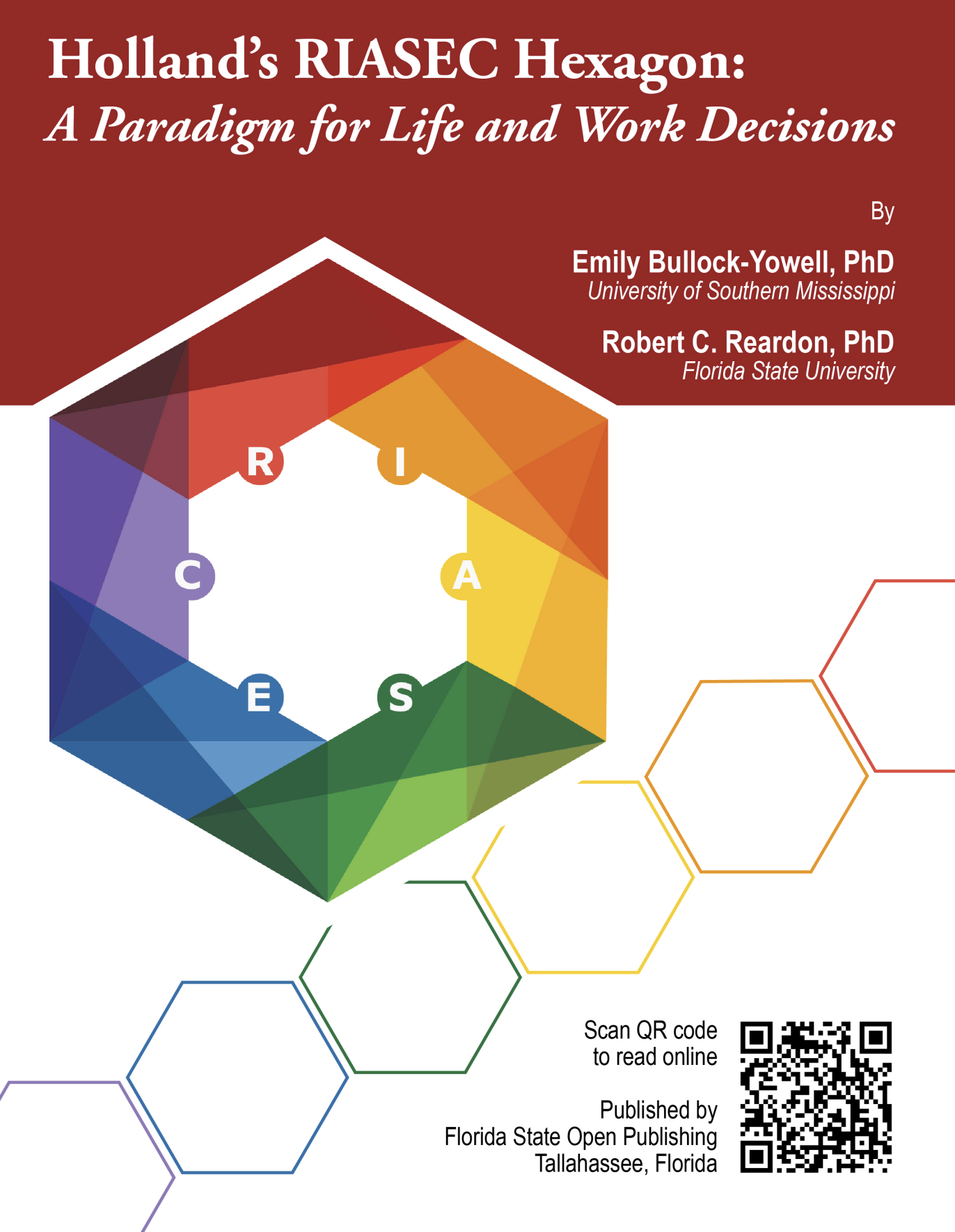
by Sam Marcum

Becoming a working woman can be an exciting, challenging, and sometimes intimidating time. You are joining a world of new opportunities, but there are also challenges. To succeed in your professional life, you will need to be confident, resilient, and proactive. Here are some key tactics to help you navigate and succeed in your career and work life.
Demonstrate Initiative and Proactivity
Nothing gets you noticed in the workplace like a bit of initiative. If you’re able to anticipate needs, resolve problems, and take on new responsibilities without being told what to do, then you’re going to be far more valuable in the eyes of the people who employ you. If you’re ready to step up and take ownership of tasks, then do it. Proactively seek out those projects that you think you can make a contribution to, and don’t wait for anyone to suggest them to you. You’ll build a reputation as someone who’s ready to take on challenges and add value to your team, and that’s a reputation that will make things happen for you in your career.
Enhance Your Skills with a Degree
Going to college and getting a degree is a smart career move. It will help you become more skilled, and more likely to get a job. For example, a business degree will broaden your knowledge in the fields of accounting, business, communications, and management. You can also take an online degree while working full-time. So, if you are looking for ways to get ahead in your career, this could be the ticket you’re looking for.
Turn Mistakes into Growth Opportunities
Everyone makes mistakes. But not everyone is constantly trying to learn from them, to figure out what went wrong and how to stop it from happening next time. Mistakes, in this way, can be turned into stepping stones for your development as a professional, rather than stumbling blocks to be avoided. People who can do this are demonstrating that they are self-aware, resilient and adaptable, and, crucially, that they are always striving to get better at their job.
Negotiate for Fair Compensation
To remain financially stable and professionally fulfilled, you must be paid what you deserve. Negotiating your salary can be an intimidating process, but it’s one you simply need to master. By knowing your worth, you can establish a sound basis for salary negotiations. Do some research on similar roles and experience levels in your industry to give yourself a benchmark. You must be confident and articulate about your accomplishments and what you bring to the company when discussing salary with your employer. You deserve fair compensation for your hard work. It’ll help you feel valued and motivated within your job.
Build a Strong Personal Brand and Online Presence
In the modern world of digital communication and social media, you need a brand and an online presence. A strong personal brand is one that shares your skill set, values, passions, and your professional identity. Build your professional profile with content that speaks to who you are, your accomplishments, recognitions, and experience. Ensure that your profile is up to date to include the most relevant work information. A strong personal brand will make you more credible and open more doors for networking and career advancement.
Cultivate a Positive Work-Life Balance
Your well-being and productivity largely hinge on how you balance your work and life. It is important to be committed to your job, but it is also important to spend time with your family and indulge in your hobbies or interests. Make sure you set limits between your work and personal life so that you do not work excessively. Also, you should make time for your hobbies, exercise, or spending time with your family and friends so that you have proper time to relax. Having a balanced approach will help you remain motivated and energized so that you will be able to perform to the best of your ability in both your professional and personal life.
As a young woman starting out in the workplace, you have challenges and opportunities. However, you can set yourself up for success. Take the initiative, improve your skills, embrace diversity, learn from mistakes, negotiate with confidence, create a strong personal brand, and establish a good work-life balance. There is no “right” way to have a career, but with the right strategies and mindset, you can have a great career.
Sam Marcum
Sam Marcum’s bizbenefitguide.com helps organizations thoroughly-articulate their benefits with brief, engaging multimedia material and genuine thorough reviews of health insurance companies.
The site combines deep expertise in video presentations to create solutions for employers, consultants, financial institutions, and CDHC partners.
by Ani Titus
 I had the privilege of attending the prestigious APCDA Conference in April 2024 in the beautiful city of Trivandrum, Kerala, India. It was an incredible opportunity to meet the esteemed APCDA Director, Marilyn Maze, and share our visionary mission to drive transformative change and support students in higher education through the innovative Ask A Student portal.
I had the privilege of attending the prestigious APCDA Conference in April 2024 in the beautiful city of Trivandrum, Kerala, India. It was an incredible opportunity to meet the esteemed APCDA Director, Marilyn Maze, and share our visionary mission to drive transformative change and support students in higher education through the innovative Ask A Student portal.
During our discussions, Marilyn recognized the potential impact of our portal and kindly offered me the opportunity to write about how it can be a valuable resource for career counselors. The Ask A Student portal is designed to enhance educational ecosystem.
Understanding The Challenge
Every year, millions of students worldwide embark on the journey of higher education—an expensive and life-changing decision. Many students live thousands of miles away from their targeted universities in a foreign country making it hard for them to visit and connect with university reps and current students. As per a survey, 9 out of 10 people aged between 21 and 65 say they regret rushing their career choices with many picking a university course at random.
THE SOLUTON
Current Students:
We believe current students are uniquely equipped to help future students make the best career decisions. They can provide unbiased advice and share real-life experiences from their journey. Additionally, they can support future students in navigating their initial days on campus, offering guidance on accommodation, eateries, study materials, campus tours, and more.
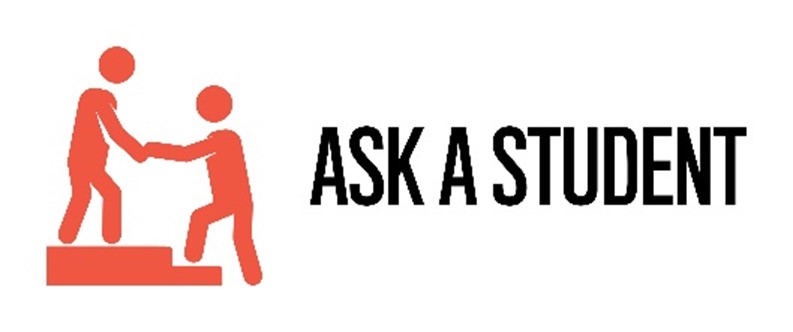 Navigating the complex landscape of tertiary education can be overwhelming for aspiring students. The availability of firsthand information about their dream universities can significantly impact their decisions. Ask A Student addresses this challenge by bridging the connection gap between future and current students. The platform offers an innovative technological solution that allows prospective students to book video calls or chats with current students from universities worldwide.
Navigating the complex landscape of tertiary education can be overwhelming for aspiring students. The availability of firsthand information about their dream universities can significantly impact their decisions. Ask A Student addresses this challenge by bridging the connection gap between future and current students. The platform offers an innovative technological solution that allows prospective students to book video calls or chats with current students from universities worldwide.
The Power of Personal Connections:
Ask A Student firmly believes that personal connections play a vital role in making well-informed career decisions. By connecting with current students, aspiring students can gain access to invaluable insights, experiences, and guidance. Whether it’s about course selection, campus
life, or career prospects, future students can engage in meaningful conversations with those who have firsthand knowledge. These interactions provide unbiased feedback, helping them make informed choices that align with their aspirations and goals.
The Mission:
The portal’s mission is to ensure smarter, error-free university decisions and to smoothen the transition to university life for students worldwide. By 2028, the portal aims to empower 1 million students worldwide to make informed higher education decisions. This will be achieved by creating a network of the best current student advisors and fostering a supportive and well-connected global community of tertiary students.
About The Founder
Mr. Gaurav Aggarwal, CEO & President, launched the Ask A Student portal in April 2022, following over a year of dedicated development with his team. Having attended universities in two countries, Gaurav gained first-hand experience and a deep understanding of the challenges involved in making higher education decisions, especially for international students. Through Ask A Student, his vision is to support students globally in their higher education journey.
Gaurav is a qualified engineer from Maharshi Dayanand University in India and holds a Master in Global Business with distinction from Auckland University of Technology in New Zealand. He is also a scholar and lifetime member of the Beta Gamma Sigma Society, an academic honor society for top business school students.
With over fifteen years of work experience in three countries, Gaurav has collaborated with start-ups, corporations, small businesses, and not-for-profit organizations. He has played key roles in launching three start-ups prior to Ask A Student.
Conclusion
Ask A Student is revolutionizing peer-to-peer networking in the tertiary education landscape. By providing a platform for future students to connect with current experts, it enables informed decision-making and encourages the growth of peer networks. The power of personal connections cannot be underestimated when it comes to shaping successful academic journeys. Ask A Student brings together aspiring future and current students, fostering a collaborative and supportive community that empowers students to make the right choices for their educational and career paths.
For more information, visit the pages below:
This comprehensive overview of Ask A Student highlights its innovative approach to supporting university students worldwide. With Gaurav Aggarwal at the helm, the platform is poised to make a significant impact on higher education decisions globally.
 Ani Titus is a certified UCLA Career Counselor, Co-founder of Ask A Student, and PR member of APCDA who finds immense joy in guiding individuals, especially students, toward fulfilling career paths.
Ani Titus is a certified UCLA Career Counselor, Co-founder of Ask A Student, and PR member of APCDA who finds immense joy in guiding individuals, especially students, toward fulfilling career paths.
She leverages her extensive experience and knowledge to make a positive impact on their career journeys.
by Sam Marcum

College life has a lot to offer, from high-quality education to fantastic social experiences, and everything in between. However, it can also be expensive, leading many students to seek employment opportunities to supplement their income. Finding a job that works well with your college schedule can be challenging.
Choose the right type of school.
The best type of college for a working student is one that offers flexible scheduling. Online colleges let students earn their degrees from anywhere in the world, meaning they can work a job while studying. The flexibility of online courses is second to none, and getting an online degree is significantly less expensive than a traditional degree.
Look for the right jobs.
Similar to degree programs, the top jobs for college students will offer flexible scheduling, but they will also provide decent pay and an opportunity to learn new skills. Retail, real estate, customer service, and hospitality industry jobs make up some of the ideal options for students. That said, you might also consider working as a tutor, pet sitter, or freelancer, all of which would allow you to easily balance your studies and job.
Know where to find work.
Finding work as a college student is not as difficult as it may seem. Start by checking your college’s job board or career center; they may list on-campus jobs, internships, and volunteer opportunities.
If you want a job off-campus, look to online job boards or social media groups. Networking is also a fantastic way to find good jobs; talk to your professors or other students to see if they know of any opportunities that would fit your needs.
Strike a healthy balance with your commitments.
Balancing your commitments can be overwhelming when pursuing a degree. You must have a schedule and stick to it. Prioritize your time spent on studying, and don’t be afraid to say no to social invitations if necessary! WhatCherithInks advises taking time for yourself and practicing self-care so you can maintain a healthy balance that helps you succeed in school and work. You can always check out online hacks for pointers on how to make quick work out of regular tasks like washing your clothes and cleaning up around your living quarters.
Here are some practical tips for achieving that balance:
Develop a time management strategy: Managing your time effectively is crucial when it comes to striking a balance between college and work. SkillsYouNeed suggests creating a daily schedule and allocate time for study, work, and downtime.
Communicate with your employer and professors: It’s essential to communicate well with your boss and professors if you hope to maintain a balance between study and work. Be honest with your boss about your study commitments, and with your professors about any work-related commitments that might impact your attendance or classwork.
Consider working for yourself: Working for yourself while attending college can be a rewarding yet challenging experience. It offers the flexibility to manage your own schedule around your studies and the opportunity to earn income or even start building a business that could flourish beyond your college years. There are plenty of solopreneur ideas ideally suited for you, including the following:
- Starting a web design business
- Freelance writing
- Data entry
- Home repair
- Graphic design
Make time for yourself: Sometimes juggling work and college means that we forget to leave space for ourselves. You must take breaks, relax, or do things you enjoy so you can recharge and refocus!
Stay flexible: Life is unpredictable, and things don’t always go according to plan. Remain flexible and adaptable whenever you need to adjust your schedule to accommodate any unforeseen changes.
You have a wealth of job options to choose from as a college student. Take time to research the various opportunities available that will fit into your college schedule and provide an opportunity to expand your skill set. With a top-notch resume and a commitment to balance your responsibilities, you can excel both in your academics and your new job. Remember to make self-care a priority, and never hesitate to ask for help when you need it!
By Han Kok Kwang, Bestselling Author, 1st Legacy Partner Lifetime Member of APCDA & 1st NCDA (US) Master Trainer in Asia
Since conducting a webinar on Artificial Intelligence (AI) for APCDA last year, things have really taken off on the AI front, from Devin to SORA to Chat GPT4o etc…
Elon Musk, tech titan and one of the richest men in the world, says “artificial intelligence will take all our jobs” while speaking remotely via webcam at VivaTech 2024 last month in Paris.
Amid all the hype, the question remains: Have you leveled up your AI skills so that you can help more people?
Many career practitioners I spoke to have this dual feeling of confidence (AI cannot replace our human touch) and anxiety (what if my clients prefer the speed, low cost and breadth of AI?).
The way out? Have the best of both worlds by augmenting your expertise and human touch with AI!
How?
Use AI daily for work. Start with a free account and a clear goal (eg. how can I use AI to better help my clients?). Get a paid account once you get the hang of it because you can do so much more.
Which AI?
My personal favorite is ChatGPT 4o by Open AI because that’s how I started. When I ran the APCDA webinar in April last year, I had only used ChatGPT for about a month. But I felt something BIG must be happening if OpenAI can get 100,000,000 active users in just 2 months!
Feel free to choose your own, be it Gemini (Google), Claude (Anthropic), Perplexity or Co-pilot (Microsoft). Bear in mind that you are training the AI when you use them daily. Overtime, the AI literally understands you and can be your virtual clone in terms of how you think, speak, ask, behave, etc… That’s why we have AI coaches these days eg. Marshallgoldsmith.ai/chat
But isn’t AI just about prompts?
No, it isn’t. In fact, prompting is the lowest layer.
Beyond prompts (natural language instructions), you have tools (eg. software), tactics (specific actions within the strategy to guide AI deployment in various situations), strategy (how AI will be deployed), models (frameworks that apply heuristics) and heuristics (cognitive shortcuts), just to name a few.
Tip #1: never share your personal details on any platform because we have no idea how they will be used.
Tip #2: AI hallucinates all the time (ie. create their own content).
Always do your due diligence on the outputs.
AI can be a superpower for career practitioners when used thoughtfully and strategically. By leveraging AI to handle routine tasks, provide personalized insights, and scale services, you can enhance your human touch, focus on meaningful client interactions, and ultimately help more clients effectively.
The challenge?
Balancing AI capabilities with the empathetic and personalized approach that defines successful career coaching.
What if you believe that you are fine as it is? I hope the following trends will change your mind:
- Automated Career Guidance Platforms
Example: A traditional career coach might lose clients to platforms eg. pymetrics that can provide instant, tailored career paths based on extensive data analysis. - AI-Driven Resume Builders and Job Matching
Example: A career coach who spends hours manually tailoring resumes might lose out to AI tools eg. jobscan that can do the job in minutes, with higher success rates. - Virtual Interview Coaches
Example: Clients might opt for AI tools eg. hirevue that provides immediate and continuous interview practice, rather than waiting for scheduled sessions with a human coach. - Skill Gap Analysis and Training Recommendations
Example: Clients might prefer AI for ongoing skills assessment and development recommendations eg. Coursera’s skills graph, which adapts in real-time to their progress. - Real-Time Labor Market Insights
Example: Clients looking for the latest job market trends might bypass practitioners who cannot offer such up-to-date information eg. Burning Glass Technologies - Automated Networking Suggestions
Example: A client might favor AI for its ability to identify and suggest high-value networking opportunities instantly eg. LinkedIn AI tools - Content Creation and Personal Branding
Example: Clients might choose AI tools eg. Canva for creating and managing their personal brand over practitioners who offer manual, time-consuming services. - Virtual Assistants for Career Coaching
Example: A client might switch to an AI virtual assistant for its convenience and constant availability. - Predictive Analytics for Career Planning
Example: Clients may prefer AI-driven career planning tools that predict industry growth and career opportunities with high accuracy. - Cost Efficiency and Scalability
Example: Clients might opt for AI-driven services that offer comprehensive career support at a lower cost and greater scalability than traditional career coaching eg. Mypath careers.
AI will not replace you yet, but the coach who uses AI will. And tech savvy clients will see the stark difference between an AI-powered coach and a conventional coach. Guess who they will choose😊
The decision is yours.
Choose the one that your future self will thank you for. Make AI your Superpower, not your Kryptonite!
To find out more, connect with Han on LinkedIn: https://www.linkedin.com/in/hankokkwang/
By Camilia Safatli, APCDA Conflict Zone Scholar, Alawite Islamic Charity Association (AICA), Lebanon
As the Grants Program Manager at the Alawite Islamic Charity Association (AICA) in Northern Lebanon, I have observed significant progresses in career development practices within our region. With a focus on empowering individuals and communities, AICA has been actively involved in supporting career development interventions tailored to the unique needs of our local population.
Through our AICA programs, we prioritize providing access to vocational training, skill-building workshops, and employment opportunities; particularly for vulnerable groups such as refugees, migrants, and marginalized Lebanese individuals. By addressing barriers to career advancement, such as limited access to education and employment resources, we aim to promote inclusive and sustainable economic growth in our community.
AICA collaborates closely with local stakeholders, including government agencies, educational institutions, and non-profit organizations, to ensure the effectiveness and relevance of our career development initiatives. By leveraging partnerships and resources, we strive to create holistic solutions that address immediate challenges to enhance the success of realizing long-term goals.
We recognize the importance of incorporating innovative approaches to career development, such as digital skills training, mainly providing International Computer Driving License (ICDL) accredited certification along with entrepreneurship support. These efforts aim to equip individuals with the tools and resources they need to navigate an evolving job market and pursue meaningful career pathways.
As a member of APCDA, AICA is committed to sharing our experiences and best practices in career development with the broader Asia Pacific region. We believe that by exchanging knowledge and expertise, we can collectively enhance the impact of career counseling and support sustainable development across diverse communities.
By Elena Stewart
Photo by Freepik
A career setback can be an unexpected bump on your professional journey. While it might momentarily shake your confidence and disrupt your plans, it’s also an opportunity to pause, reassess, and regroup. This article aims to explore practical steps and strategies for turning a career setback into a springboard for growth and success, illustrating that setbacks, though daunting, are not the end of the road but rather a detour toward potentially unexplored avenues of your professional life.
Feel Your Feelings
When faced with career setbacks, it’s essential to allow yourself to fully experience the gamut of emotions that follow. Recognizing and accepting feelings of disappointment, frustration, or sadness is not a sign of weakness but a critical step in the healing process. This emotional acceptance enables you to process these feelings more effectively, clearing the path for constructive action and forward movement.
Reflect and Learn
Every setback carries with it a lesson waiting to be discovered. Reflecting on what led to the setback and identifying key learnings not only aids in personal and professional development but also helps in avoiding similar pitfalls in the future. This process of reflection and learning is pivotal in building a resilient and adaptable career path.
Reconsider Your Goals
Career setbacks often prompt a reassessment of your professional trajectory. By breaking down long-term objectives into smaller, achievable milestones, you regain a sense of direction and control. This strategic approach not only clarifies your path forward but also instills a renewed sense of purpose and motivation, essential for overcoming the hurdles that lie ahead.
Lean on Loved Ones
The journey to overcoming career setbacks is not one to be walked alone. Leaning on friends, family, and mentors for support provides not just emotional solace but also fresh perspectives and guidance. These conversations can illuminate new pathways and solutions, providing the encouragement and insight necessary to navigate through challenging times.
Go Back to School
Going back to school stands as a strategic move to enhance your skill set, opening doors to promotions or new career paths. For example, if you work as a nurse, earning your MSN degree can significantly expand your expertise across various specializations like nurse education or advanced practice. The flexibility of online degree programs today makes it feasible to balance full-time employment with academic commitments. This educational advancement not only elevates your professional capabilities but also positions you for leadership roles and higher earning potential.
Make Self-care a Priority
In the quest to bounce back from professional setbacks, never underestimate the power of self-care. A healthy lifestyle, encompassing balanced nutrition, regular physical activity, and adequate rest, lays the foundation for both mental and physical resilience. Cultivating a strong mind and body enhances your capacity to tackle challenges head-on and emerge stronger on the other side.
In the professional arena, setbacks are not roadblocks but rather detours that can lead to even greater successes. By embracing your emotions, viewing challenges as opportunities for growth, redefining your goals, and expanding your skillset, you equip yourself with the tools needed to transform setbacks into comebacks. This journey of resilience and growth not only propels you toward your career aspirations but also fosters a profound sense of personal achievement and fulfillment.
Elena Stewart
 Is a certified life coach specializing in the teachings of Brené Brown, Danielle LaPorte, and Marie Forleo. Through one-on-one coaching sessions and career mentoring, she helps women (and men!) like yourself jumpstart their careers. Are you ready to reach your full potential? If so, I’d love to hear from you! estewart@elenastewart.com
Is a certified life coach specializing in the teachings of Brené Brown, Danielle LaPorte, and Marie Forleo. Through one-on-one coaching sessions and career mentoring, she helps women (and men!) like yourself jumpstart their careers. Are you ready to reach your full potential? If so, I’d love to hear from you! estewart@elenastewart.com
By Ms. Sini Parampota, APCDA Secretary and Dr. Sujata Ives, APCDA Program Committee Co-Chair
Introduction
A few weeks back the global community welcomed the New 2024 Year with wishes for peace, prosperity and good health to all, that reverberated from one corner of the Earth to the other.
Career development professionals transitioned into 2024 on a very positive note, as our profession topped the World Economic Forum list of jobs that are less likely to be affected by artificial intelligence, but are strongly affected by the need for advanced skills to match an evolving global labor market. In order for us to continue delivering high quality services to our clients, we must consider pertinent global issues that will shape career development in the Asia Pacific region and beyond. Emerging global labour market trends will be affected through the changes that have already begun in the world of work through the Fifth Industrial Revolution.
We are excited about two upcoming APCDA events; a Panel Discussion with policy makers on skills and market labor issues on February 29, 2024, and the 2024 APCDA Hybrid Conference themed “Reinvention 5.0”, to be held on April 15-27, 2024, that is inspired by the European Commission’s vision of “Industry 5.0”. The February Panel discussion will prepare you for the conference.
Here are a few points for you to think about ahead of these events:
- Transferrable and emotional intelligence skills have been viewed as background “soft currency” for much too long, so how can we change this view?
- What impact will global market issues have on your geographical region?
- What is the relationship of skills and market issues to the Fifth Industrial Revolution, and how will that affect us?
- Through research and published reports, how can we integrate changes and improvements to our field?
Pertinent Research
There are global debates about when exactly is the starting point of the Fifth Industrial Revolution, however all tend to agree that the COVID-19 pandemic accelerated the interdependence between people and technology (Sarfraz et al., 2021), especially with the rise of artificial intelligence, and the need to leverage the collaboration between humans and machines in a more harmonious fashion for the greater prosperity of the society as a whole (Noble et al., 2022).
European policy makers introduced in 2021 a new policy brief, the Industry 5.0 as a “forward-thinking exercise” (Breque et al., 2021), that needs to be understood in parallel with the existing Fourth Industrial Revolution paradigm rather as an alternative to it. Instead, the European Commission’s vision of a value driven Industry 5.0 “complements and extends the hallmark features of Industry 4.0” (Breque et al., 2021), and leads towards a human-centric, sustainable and resilient European industry that enables “digital and green transitions”.
To achieve such, the European Commision has set forward a set of policies that addresses:
- Regulating digital technologies and artificial intelligence that are imbued with a human-centric approach (Proposal for AI regulation)
- Defining the need for European workers to upskill and reskill with special focus in digital literacy (Skills Agenda and Digital Education Action plan)
- Creating sustainable industries based on modern, resource-efficient principles that will enable transition to a circular economy (Green Deal)
- Speeding up investment in research and innovation to give European industry a global competitive-edge in order to become a world-leader (Industrial Strategy).
Furthermore, the Organization for Economic Co-operation and Development (OECD), an international forum that provides policy advice and technical assistance to countries around the world, issued a document in November 2023 entitled “OECD Skills Outlook 2023: Skills for a Resilient Green and Digital Transition”.
In the inaugural event, OECD Secretary-General Mathias Cormann said:
“To ensure everyone can participate in and benefit from economic development and growth and in particular the opportunities created by the green and digital transformations, policymakers must better align education and skills training with the skills needed in the labour market. This is essential to help workers navigate the significant impacts of these transformations on labour markets.”
Last November, SkillsFuture Singapore (SSG) issued their annual Skills Demand for the Future Economy Report 2023/24, aiming to “build deep skills for a lean workforce, enhance business competitiveness and support employment and employability”. Despite the lack of substantial natural resources, Singapore’s most valuable resource is its people, ranking at the top of World Bank Human Capital Index in human capital development. The report is a testament of the attention Singaporean policy makers are paying to support individuals, enterprises, training providers and adult educators in their lifelong learning and career development quests that are directly linked to the prosperity of the nation.
A different example hails from India, which last year became the most populous nation in the world surpassing China, and a very different socioeconomic context from Singapore. However, Indian policy makers also recognize the need to “bring into focus the high in-demand and emerging Industry skills”, hence last March the National Council for Vocational Education and Training in India, introduced the Guidelines For Development, Approval & Usage Of National Occupational Standards (Nos) And Micro Credentials (Mc) as part of the National Skills Qualification Framework.
In most developed countries we witness a shift in their approach of future-proofing their economies by connecting educational outcomes with Labour Market needs. One of the most significant changes in their approach is the focus they pay in building advanced skills in their workforce and moving away from traditional occupational clusters. This new policy shift is due to the unparalleled changes of our times, including the climate change, digital transformation and the rise of generative AI, that redefine much of what we know about the world of work and the way knowledge is exchanged with repercussions at every level of the society.
According to the World Economic Forum’s “The Future of Jobs Report 2023”, many of the jobs we know today will be affected by technology, new will emerge based on the advancements of AI and the efforts to green the economy, while others will shrink or be replaced as economic trends are churned. This necessitates actions to upskill and reskill current and future workforce, advance digital and AI literacy for youth, and boost skills like analytical thinking, creativity, AI & big data, leadership, curiosity & lifelong learning, etc.
Career development plays a pivotal role in such efforts by enabling personal, social, educational, and economic success and connecting key stakeholders in the decision-making process. Some great examples of national priorities are also found in Asia.
In recent years, globalization, digitalization and automation have had a considerable impact on the changes we witness in the World of Work (Kettunen, 2021), including occupations and work methods that demand individuals to learn to navigate multiple transitions and career changes in Gig Economy (temporary, short-term, agency-based work or self-employment) which requires a lifelong learning mindset and a sophisticated set of skills.
These issues concern not only job seekers, but equally employers, career development professionals, as well as policy and decision makers.
Today we also witness a greater societal shift in the way people view work (Piscione and Drean, 2023), especially after the COVID-19 pandemic. New technologies allow us to work literally from anywhere, introducing new business models such as Web3, redefining the definition of workplace with Decentralized Autonomous Organizations (DAOs), the prevalence of lateral relations and data ownership that lies with the users.
More and more countries embrace the concept of ‘Digital Nomads’, a new generation of knowledge workers that are highly mobile and digital fluent. Various countries are offering short-term visas that benefit the host-country, the workers, as well as the organizations they work with or for, boosting local economies and allowing flow of information, creativity and innovation to emerge (Choudhury, 2022).
Additionally, countries, such as the United Arab Emirates, and global conglomerates, such as Unilever, introduced a new model of 4-day Week, that could be the answer to the Future of Work (Bester, 2022). Early data highlight higher productivity, increased well-being and life-work balance, improved talent retention, but also benefits that are linked to the climate agenda.
Such examples are further supported by the Career Development in 2040 report funded and released by CERIC, the Canadian charitable organization that advances education and research in career counselling and career development. Though the report is based on a country specific context, much of the outcomes have a global relevance, and below major changes are expected to impact the Future of Work and Workers:
work anywhere
AI & automation
living with climate change
geopolitical conflicts
reconciling the impacts of colonialism
economic precarity
globalization under pressure, etc.
disrupted education
declining mental health & well-being
generational shifts
APCDA Panel Discussion
On February 29th, 2024 APCDA will host a virtual Panel discussion entitled “Skills as Soft Currency: Perspectives of Policymakers on Pertinent global Labor Market issues”, with representatives from OECD, SkillsFuture Singapore and India’s National Council for Vocational Education and Training (NCVET).
The panel is a forerunner of this year’s conference, giving global perspectives on emerging issues in the APAC region and the world, such as the upskilling and reskilling of adults to address necessary career shifts and skills shortages, building a workforce with the right skills to transition into green and digital economies, the value of micro-credentialing to bridge skills mismatch in national systems and helping individuals to make informed choices on career development and skills upgrading.
Distinguished guests include:
Glenda Quintini, is a Senior Economist and Head of Skills Team at OECD, who provides advice and technical assistance to countries on their skills-related policies, carries out comparative analysis -covering both OECD and developing countries, and contributes to the development of the OECD Survey of Adult Skills (PIAAC)
Soon-Joo Gog, is the Chief Skills Officer at SkillsFuture Singapore and member of the leadership team of the national agency that enables Singaporeans to develop their full potential throughout life
Neena Pahuja, is an Executive Member of the National Council for Vocational Education and Training (NCVET) under the Ministry of Skill Development in India.
Make sure to join the event, raise your questions and hear from the experts!
You can register here.
We look forward to seeing you!
References
Breque, M., De Nul, L., Petridis, A., 2021. Industry 5.0 – Towards a sustainable, human-centric and resilient European industry, l.: European Commission, Directorate-General for Research and Innovation, Publications Office of the European Union. https://data.europa.eu/doi/10.2777/308407
Choudhury, P., 2022. How “Digital Nomad” Visas Can Boost Local Economies. Harvard Business Review, 27 May.
Kettunen, J., October 2021. Career experts’ conceptions of innovation in career development. International Journal for Educational and Vocational Guidance , 23(1), pp. 465-481.
Noble, M., Mende, M., Grewal, D., Parasuraman, A., 2022. The Fifth Industrial Revolution: How Harmonious Human–Machine Collaboration is Triggering a Retail and Service [R]evolution,. Journal of Retailing, 98(2), pp. 199-208.
Piscione, D. a. D. J., 2023. 4 Forces That Are Fundamentally Changing How We Work. Harvard Business Review, 16 October.
Prising, J., 2022. What does a four-day work week mean for the future of work?. World Economic Forum, 22 May.
Tackling Post-Pandemic Workforce Issues Through HRP and CDPs
By Elena Stewart
 In the wake of the COVID-19 pandemic, you’ve probably noticed dramatic changes in your company’s customer demands, as well as your employees’ needs. Regardless of your industry, there’s no denying that the pandemic shook up the corporate landscape.
In the wake of the COVID-19 pandemic, you’ve probably noticed dramatic changes in your company’s customer demands, as well as your employees’ needs. Regardless of your industry, there’s no denying that the pandemic shook up the corporate landscape.
Investing in professional development for your organization can help you prepare your business for the future. Furthermore, here’s how you can adjust your human resource planning strategy and adopt a customer data platform to solve workforce issues and meet the changing needs of your team and your audience.
How Consumer Behavior Has Shifted
Your workforce needs will depend on your customers’ demands, so it’s important to understand exactly how consumer behavior has shifted after the pandemic in order to staff your business appropriately. Adroll states that consumers today are more likely to shop online, spend money on experiences, and patronize businesses that are mission-driven. Therefore, you may need to hire ecommerce experts, digital marketing specialists, customer experience professionals, or even leaders who specialize in environmental, social, and governance programs.
Workforce Planning After COVID-19
What other trends might be affecting workforce management for businesses like yours? Gartner states that nowadays, a growing number of people want to work remotely or secure a hybrid job. Even those who do hold full-time, in-person positions want more flexibility. This means that when it comes to workforce planning, you can expand your talent search nationally or globally, ensure that you have best practices in place to manage remote and hybrid employees and prepare your human resources department to screen a higher volume of applications for remote roles with a large search radius.
Introducing a Customer Data Platform
How can you accurately assess your customers’ shifting needs so that you can meet their demands with adequate workforce planning? A customer data platform is the answer. With a customer data platform, you can view and manage all of your customer data with a single database. A program like this can store data about every customer interaction, allowing you to categorize your data and analyze these details to create optimal marketing, sales, and engagement strategies. You’ll want to explore options for a customer data platform so that you can determine which software program is best for your company.
Implementing a Center of Excellence
Once you understand how to best meet your customers’ new demands, you can start designing a new approach to human resource planning. This begins with developing a Center of Excellence within your company. A center of excellence, also known as a CoE, is a collection of best practices that uphold employee well-being and optimal business strategies in order to support workforce satisfaction and retention. By understanding the use of a CoE manager, you can measure the success of your program through automated processes.
Choosing Human Resource Planning Tools
Human resource planning is difficult without the right tools. It’s a good idea to research software that can help you with different steps of the HRP process, from assessing your staffing levels to onboarding new team members in an efficient manner. Rather than using different tools for each task, try to seek out a software program that provides an all-in-one solution. The implementation process will be more efficient, and it will be easier to get your employees up to speed.
With the COVID-19 pandemic behind us, companies are still adjusting to the many ways in which this world-changing event altered the course of business, particularly in regard to customer needs and workforce planning. But you can overcome these challenges. Through careful HRP and the integration of the right CDP, you can accurately anticipate your workforce needs, develop a center of excellence, and keep your customers satisfied.
Creating Unicorn Careers: Navigating the Future of Work with STEM
By Tam Nguyen
 Having delved into the intriguing Forecast of Canadian Occupational Growth that we shared in last week’s newsletter, what truly captivates my attention is not just the sectors that are expected to flourish by 2030, but rather the emphasis on the skills, trends, and strategies that are more likely to be resilient in the future. This emphasis on a skill-based approach is considered foundational in this era of the rapidly changing world of work.
Having delved into the intriguing Forecast of Canadian Occupational Growth that we shared in last week’s newsletter, what truly captivates my attention is not just the sectors that are expected to flourish by 2030, but rather the emphasis on the skills, trends, and strategies that are more likely to be resilient in the future. This emphasis on a skill-based approach is considered foundational in this era of the rapidly changing world of work.
The research revealed a pivotal realization: what we, as workers, educators, advisors, and policymakers need to prepare for or help our clients prepare for lies not within a single realm of expertise, but rather in the multifaceted cultivation of skills. “This highlights that training policies and programs should not focus on any one area of knowledge, skill, or ability to best prepare people for the future of work, but instead support skills development on multiple fronts.”
One example is STEM – a sector undoubtedly expected to grow. Yet the report highlights the fact that not only highly technical skills are required; interpersonal skills and creativity are critical in the landscape of 2030. How could career practitioners help our clients chart their careers with science-focused skills and other creative career interests?
Our upcoming October speaker – Alaina G. Levine might have an answer for your STEM career questions. With a background in mathematics, Alaina grappled with what other career choices she could pursue aside from being a math professor. Despite being told “nothing” by her career advisor, she embarked on a remarkable journey, ingeniously interweaving her mathematical prowess with an unexpected passion—comedy. Today, she stands as a well-known STEM career coach, professional speaker, corporate comedian, and author.
Her unique data-driven approach in career practice has helped scientists and engineers design meaningful careers, combining the love of science and creativity to solve problems and serve the community. Have you ever wondered how the love of physics and dance can spark a unique career path? Or how baking and chemical engineering can turn into a joyful impact-driven career choice?
Our journey as workers and career practitioners toward the future of work beckons us to go beyond conventional boundaries. The horizon of 2030 requires not just specialists, but versatile trailblazers who embrace diverse skills and the adaptability to craft careers that are not only economically fruitful but also resonate deeply with our inner aspirations, ushering in the era of the “Unicorn Career.”
To know more about Alaina and our fire chat session in October, click this link and register for the event. And most importantly, share your pressing questions directly with our speaker to enrich the conversation.
New Career Development Term: Intersectionality
By Dr. Marilyn Maze
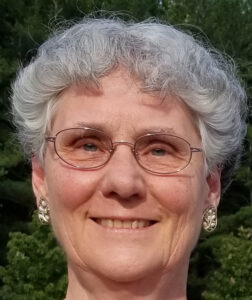 You have probably heard of DEI (Diversity, Equity, and Inclusion), but Intersectionality is a slightly less-known term defined as an analytical framework for understanding how a person’s various social and political identities combine to create different modes of discrimination and privilege. Intersectionality relates to gender equality and social justice and identifies multiple factors of advantage and disadvantage.
You have probably heard of DEI (Diversity, Equity, and Inclusion), but Intersectionality is a slightly less-known term defined as an analytical framework for understanding how a person’s various social and political identities combine to create different modes of discrimination and privilege. Intersectionality relates to gender equality and social justice and identifies multiple factors of advantage and disadvantage.
GenderLab of India gave APCDA two webinars on this topic. In the first webinar, we experiences Intersectionality by applying it to ourselves (available here). In the second webinar, we looked at ways it applies to work settings (available here). The term “DEI” (Diversity, Equality, and Inclusion) is in common use today, but Intersectionality helps us to experience and understand these terms in a very personal way that helps us a counselors and practitioners to be more in tune with the feelings of our clients.
We began by completing our own Social Identity Wheel which asked us to list various types of identities that make us who we are, including Age, Gender, Sex, Sexual Orientation, Religious/Spiritual beliefs, Caste/Race/Ethnicity, Physical/Emotional/Developmental Abilities, and Languages. We were asked which of these identities we think about most often? Least often? Which identities have the strongest effect on how we perceive ourselves? How others perceive us?
How much do labels affect us? It is important to see our identity as we perceive it and as others perceive it. The term Intersectionality was developed in the 1980’s by Kimberly Crenshaw (see TED Talk below). Intersectionality relates to stereotypes and binary thinking of all kinds – disabilities, ethnic background, social-economic background. Through various examples, the group explored how different identities we hold make us experience different feelings in life – it could be those of pride, shame, anger, joy, etc. These feelings influence how we interact with those who hold the same or different identities.
The presenter asked us to think about our own identities which made a difference in our career paths and have impacted our ability to reach our goals or to prevent us from reaching our goals. She shared that while we are attempting to be inclusive and open to creating space for all identities, a critical step is to understand what it means to have an intersectional lens. It is when we learn about intersectionality, that we are able to acknowledge and learn about the various kinds of identities in connection with each other. That will inform our practices towards inclusion. Each of us must take responsibility to learn the feelings of others who have had different experiences than we have had.
GenderLab provided a number of materials and a Toolkit to us to help us use and continue to explore these concepts with our clients. These materials are available on the recorded webinar pages, and all APCDA Members are encouraged to watch these webinars and consider adding this concept to your practice. Please let us know how this works for you.
State of the Global Workplace, 2023 Report
Insights from Gallup
Introduction:
The State of the Global Workplace 2023 Report, compiled by Gallup, offers a comprehensive analysis of employee engagement worldwide. As career professionals, it is helpful for us to understand the insights provided, especially as they relate to the Asia Pacific region.
Engagement Rebound and its Significance:
According to the report, 23% of the global workforce now report being in a thriving state at work, representing a significant recovery from the decline observed in 2020. This resurgence highlights the intrinsic motivation and fulfillment experienced by workers worldwide and reinforces the link between engagement and positive work outcomes. However, the remaining 77% of employees who are not fully engaged pose crucial questions that demand our attention.
Key Findings and Implications:
This article highlights the key findings from the report and presents questions on which members can reflect.
1. The Cost of Low Engagement:
Low employee engagement had a staggering economic impact, amounting to $8.8 trillion or 9% of global GDP. This finding emphasizes the critical connection between engagement and business outcomes, underscoring the need to create work environments that foster purpose, meaningful relationships, and development opportunities.
2. Overcoming Quiet Quitting:
Research indicates that 6 in 10 employees quietly disengage but can be re-engaged with a few workplace changes. This finding emphasizes the positive correlation between engagement and productivity, highlighting the importance of investing in human capital, upskilling initiatives, and inclusive economic policies to nurture a thriving workforce.
3. The Role of Leadership and Management:
Leadership and management directly impact workplace engagement. Organizational culture, leadership styles, and transparent communication are possibly some of the key factors in employee satisfaction. Inclusive leadership styles, autonomy, and a supportive culture that encourages growth play a vital role in fostering engagement.
4. Regional Contexts and Disparities:
While the overall engagement numbers are encouraging, there are significant disparities across regions. Data from different parts of the world shed light on the diverse aspects that influence workplace engagement. From a sense of purpose and pride in work to strong camaraderie and friendships with colleagues, social connections and meaningful experiences play a crucial role in fostering engagement.
Comparison by Region
US/Canada | East Asia | South Asia | Southeast Asia | Australia/ New Zealand | |
| Thriving at work | 31% | 17% | 33% | 26% | 23% |
| Quiet quitting | 52% | 62% | 46% | 68% | 67% |
| Loud quitting | 17% | 21% | 21% | 6% | 11% |
| Stress | 52% | 52% | 35% | 26% | 47% |
| Anger | 18% | 17% | 36% | 19% | 15% |
| Job climate good | 71% | 50% | 56% | 61% | 81% |
| Intent to leave | 47% | 56% | 50% | 51% | 43% |
In this table, we see that US/Canada and South Asia have the highest percentage of workers who are thriving, while Southeast Asia and Australia/New Zealand have the highest percentage who have quietly quit. The number of workers who have quit loudly is fairly similar, but East Asia and South Asia are tied for highest with Southeast Asia the lowest. Stress is much higher in the US/Canada, East Asia, and Australia/New Zealand. Anger is higher in South Asia. Workers in Australia/New Zealand feel best about the job market (although all regions feel positive about the job market) and the intent to leave is similar across these regions but lowest in Australia/New Zealand (in spite of the get outlook for finding a new job).
Conclusion and Call to Action:
The report provides valuable insights into the current state of employee engagement, highlighting its drivers, challenges, and potential solutions. Career professionals must prioritize employee well-being, foster inclusive cultures, and recognize the transformative power of engagement.
As we contemplate the report’s findings, let us ponder the following questions together:
- How can we unlock the untapped potential within the remaining 77% of employees?
- How can we redefine work cultures to cultivate purpose, growth, and fulfillment?
- How can we collectively shape a future where employees thrive, and organizations flourish?
By considering these questions and implementing the report’s recommendations, career professionals can play a crucial role in creating a workforce that is engaged, productive, and satisfied.
Based on Member Meeting Discussion
At the Annual Member Meeting, we used breakout rooms to ask attendees to talk about the biggest challenges they are facing in providing career services right now. Six major themes were mentioned:
- Lack of resources, including lack of trained professionals
- Lack of common understanding of and respect for career services
- Lack of quality standards for career services
- Social Justice Issues
- Conflict between personal preference for working remotely and corporate preference for working in-office
- The casualization of the workforce
We will describe each of these separately.
1. Lack of resources, including lack of trained professionals
In many areas within our region, training in providing career services is not widely available, which means that few professionals are available to provide career services. For example, in Cambodia, the profession of career practitioner is still new and not many people are working in this field. Tools in Cambodia to support people to find the right career are still lacking. Vietnam reported a similar situation.
Among our Not-high Income Areas, the lack of resources was especially frustrating. One attendee from the Philippines said, “My biggest challenge is to deliver career development programs to all stakeholders of our institution since the number of Career Counselors/Practitioners is not enough. At this time, we are only 2 licensed professional counselors with more than 11 thousand students at our university.” Even if people are eager to get training, the ability to pay a professional salary with benefits is limited. One way to deal with the shortage of staff would be to develop more techniques for delivering large-scale services rather than one-on-one. This is a challenge that APCDA hopes to address by asking our members to provide webinars explaining how to serve groups of clients more effectively.
In most of our region, it appears that career services are not readily available for people who are not in universities. While some of our areas have good university career services, there are far fewer services outside of this setting. Attendees from the US, Australia, and several other areas reported this issue, with a special concern about the lack of services for immigrants.
2. Lack of common understanding of and respect for career services
Another widespread issue is that the public does not know what career services are and does not recognize a need for such services. One attendee gave this example: “In Indonesia, especially in less-developed areas, the awareness and knowledge about career practices is still very low. People who don’t know about career development won’t be able to understand how much they need it.” The whole concept of career management is not well-known. Often, the public thinks it is a service to find jobs for people.
In other areas, there is a stigma attached to the concept of “counseling.” One attendee reported, “When parents think about ‘counseling,’ they view it as a mental health issue rather than a career support.” Others agreed that bringing issues to a guidance office has a negative connotation. One attendee said, “In Philippines, there is a cultural mindset that career counseling is not useful.” We need to make career services more popular.
Technology is rapidly changing what clients are looking for and how they expect to find it. First, many people find their own answers online and never consult a professional. Second, many career practitioners have little expertise or resources that assist youth to identify potential careers. Most career practitioners know how to guide youth in their exploration, but unless career practitioners can provide assistance that is more trusted, attractive, and widely available than Google, we can’t expect clients to come to us for help. We all face the problem of gaining the respect of the general public. Recognizing Social Media as a major competitor, how do we gain the respect of potential clients? And how do we compete with Social Media related to cost?
A related concern in China is that millions of young people learn knowledge and techniques online. This is a very popular way to gain skills. We need to enhance the reputation of career services so young people seek advice before jumping into a field that is recommended on social media.
Some of the negative attitude toward career services may be caused by lack of training. “In the Philippines, the recognition of the expertise of career practitioners is limited as this is delegated to licensed guidance counselors.” Guidance counselors do not always have career counseling expertise. All agreed that we need to find better ways to attract youth to career services.
3. Lack of quality standards for career services
The idea of standards of quality in the provision of career services is very complex. Many areas in our region are just beginning to face the issue of standards of training for career practitioners. Several areas have training programs with no quality standards set up to guide them. Others are seeking people with more experience in our field who have developed expertise and leadership skills to lead and advance the state of career services.
Related comments include:
- “In Philippines, we need training of staff (guidance counselors) in K-12 schools – this is a training issue.”
- “In Singapore, the need is for career practitioners to step up and be more productive, and use the government initiatives more effective.”
- “We need to communicate better. We need more consistency. Now that everything is moving online, we are losing control of the results.”
- In Pakistan, a more systematic approach is needed.
- “We need a standard for qualified career practitioners in each country/area. Making policies that state how important career development practitioners roles are can be another solution.”
- “Professional development of practitioners in the region, in developing and developed countries alike, as changes and updates in career services are urgent.”
- “In India, it’s the difference in standards, access and cost/affordability. We have A or B Class cities. Career counseling has a good reputation in schools, but not in the small towns.”
Many areas in our region are just beginning to define what training of career practitioners involves. As these areas expand the number of professionals who consider themselves career professionals, certification of quality becomes an issue. Several countries have multiple training programs with no quality standards to guide them. While some countries have standards in place, these standards may not be uniformly enforced. The process of developing the field of career development practices is very complex and takes time.
4. Social justice issues
Career services can be very helpful to people living on the margins, but do these people have access to career services? One attendee explained, “In Australia: career work is quite systemic and available nation-wide, but there is a need to reach out to the marginalized. We still have a big issue with lack of access to quality career development for marginalized people. In Victoria where I live the government has just cut funding to many services.” Attendees want to see the promotion of global citizenship and UN SDGs among youth, strengthening the concept of career development as a lifelong process beyond jobs/occupations.
5. Conflict between personal preference for working remotely and corporate preference for working in-office
There has been a cultural shift, debate, and radical change in the workplace surrounding allowing remote work or requiring in-office work. COVID caused widespread immediate remote work for extended periods, and many people don’t want to return to the pre-COVID style of working. It appears that this issue affects our region broadly.
6. The casualization of the workforce
Casualization of the workforce refers to the process in which employment shifts from a preponderance of full-time and permanent positions to casual and contract positions. Employers tend to feel less commitment to the well-being of part time or temporary workers. Often temporary workers are forced to work strange schedules which do not allow them to plan their own lives. They cannot go back to school to improve themselves because they have no fixed schedule. Part time and temporary workers have fewer benefits and often experience higher levels of illness with less access to health care. Several countries reported an increase of casualization of the workforce.
7. Country-specific Issues
- Japan: the challenge is the cultural shift from having a stable job for life (HR guiding) to needing more self-direction. This is related to the casualization of the workplace, but the Japanese situation has unique aspects.
- Canada: International students struggle to find a job in Canada for Residency. We need more effective job placement for those students to assure they find jobs compatible with their qualifications.
- It was very interesting to hear about the family influence in Pakistan which is something career practitioners need to adapt to in their work.
By Lloyd’s Register Foundation
As it heats up across the Northern Hemisphere, the seasonal chatter on climate is likely to make an appearance in your conversations. Here’s a global look from the Lloyd’s Register Foundation World Risk Poll at who is most concerned about climate change. People in Latin America and the Caribbean lead the rest of the world in describing climate change as a very serious threat to their country in the next 20 years.
APCDA is offering a webinar about how climate change can be mitigated through Green Jobs on July 20, but according to the above poll, Asian countries are not too worried about this issue. Could this be true? Learn more about the data upon which the above graph is based. It was collected by Lloyd’s Register Foundation. To learn more: The Lloyd’s Register Foundation World Risk Poll
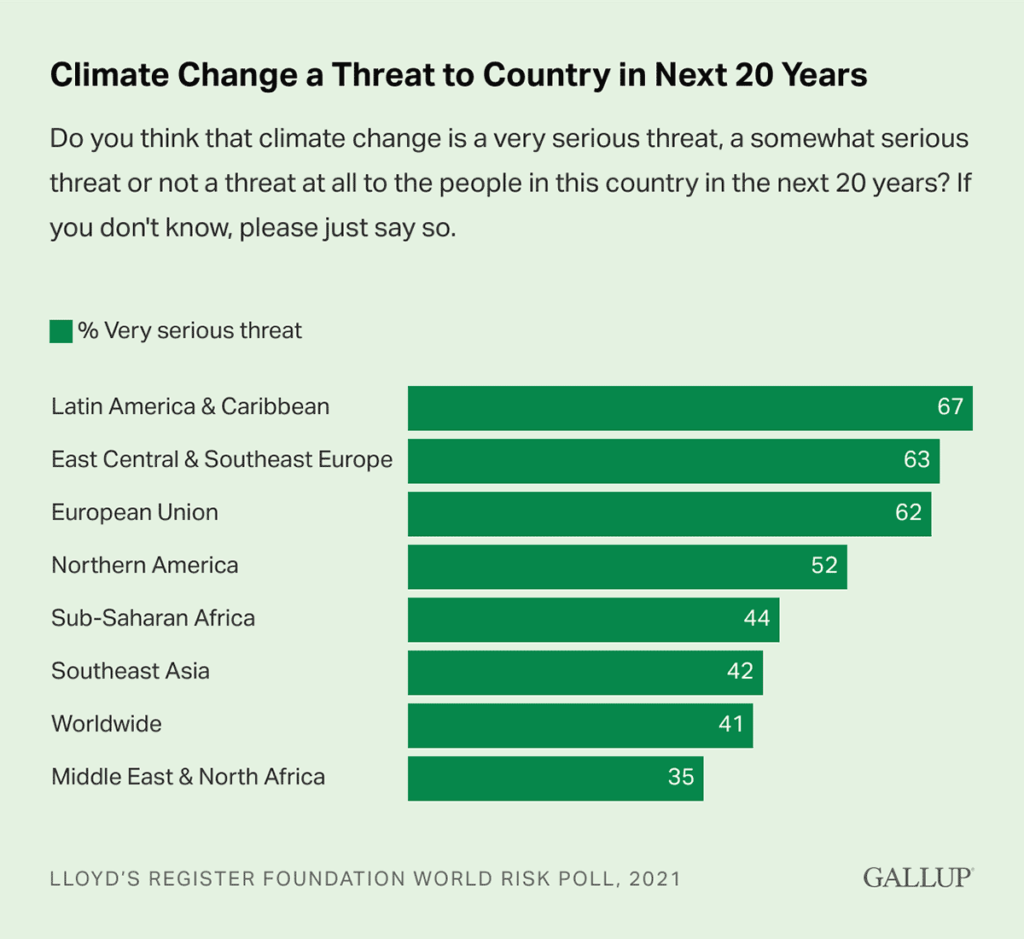
Work Locations for U.S. Employers with Remote-Capable Jobs
By Gallup
With kids out of school and workers eyeing some vacation time to enjoy the warm weather, summer is arguably the time of year when employees need their work schedule to flex the most. Today, half of America’s workers can happily juggle all of that more effectively due to their hybrid work arrangements — but it may also be a time of talent loss for those employers who refuse to flex with their workers.
These data only refer to remote-capable jobs. We know many jobs, such as manufacturing, hospitality, and retail, must be done in-person. This graph shows how the work location for these jobs was changed by the pandemic and is still changing as we attempt to find a new normal. In the United States, the new normal appears to favor hybrid work. What is happening in your area?
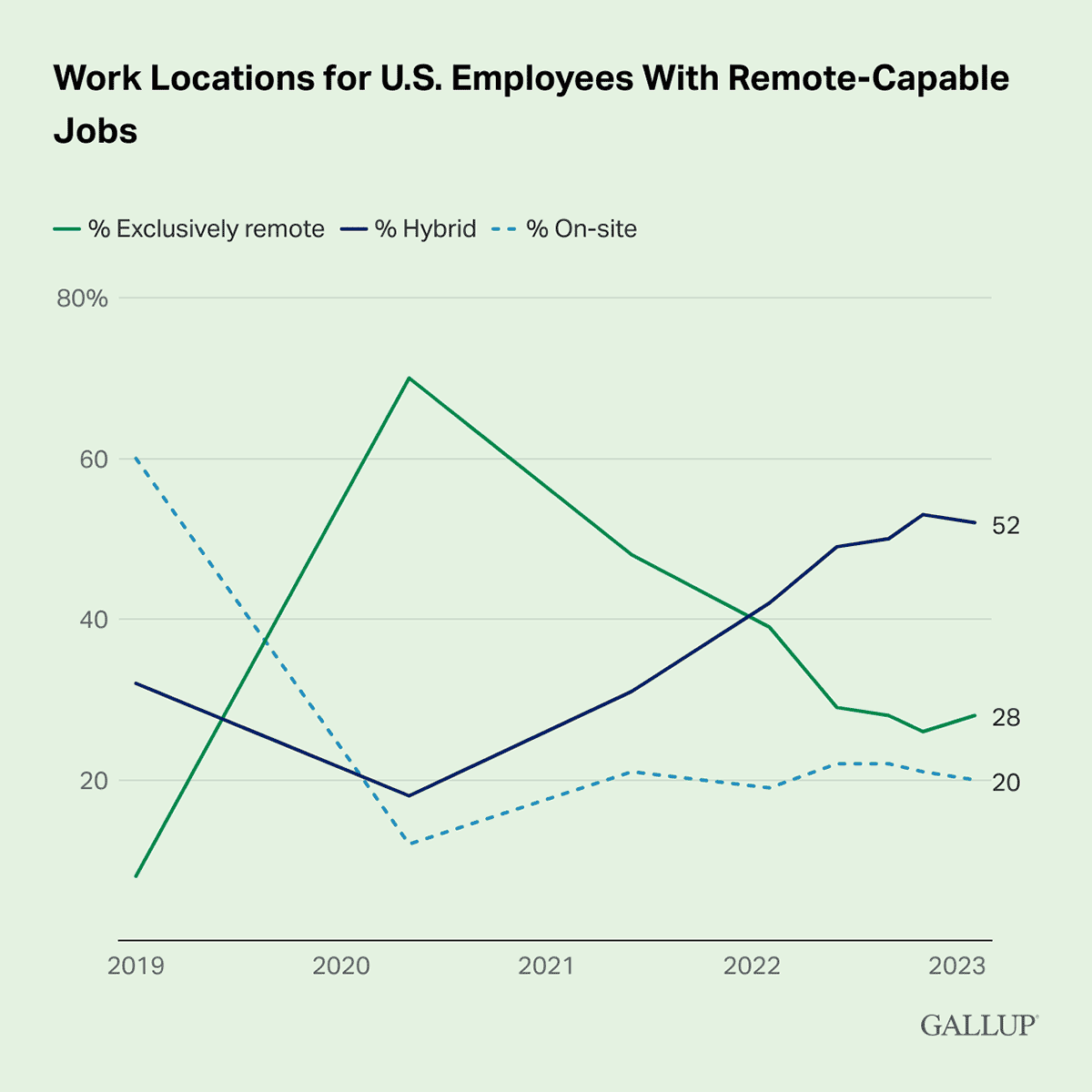
These are the 5 Fastest Growing Jobs in the World
Reprinted from the World Economic Forum
https://www.weforum.org/videos/these-are-the-5-fastest-growing-jobs
 These fastest growing jobs are predicted to expand as automation and the energy transition transform the way we work.
These fastest growing jobs are predicted to expand as automation and the energy transition transform the way we work.
- AI and Machine Learning Specialist: 39% growth
- Sustainability Specialist: 33% growth
- Business Intelligence Analyst: 32% growth
- Information Security Analyst: 31% growth
- Fintech Engineer: 31% growth
Meanwhile, these five jobs are expected to decline the most.
- Bank Teller and related clerks: 40% decline
- Postal Service Clerk: 40% decline
- Cashier and Ticket Clerk: 37% decline
- Data Entry Clerk: 36% decline
- Administrative and Executive Secretary: 34% decline
These figures cover 673 million workers, a subset of the International Labor Organization dataset and not the total 3.3 billion people in work globally.
The energy transition could add an estimated 30 million jobs by 2030 in clean energy efficiency and low emissions technologies and 3.5% a year to the global GDP.
